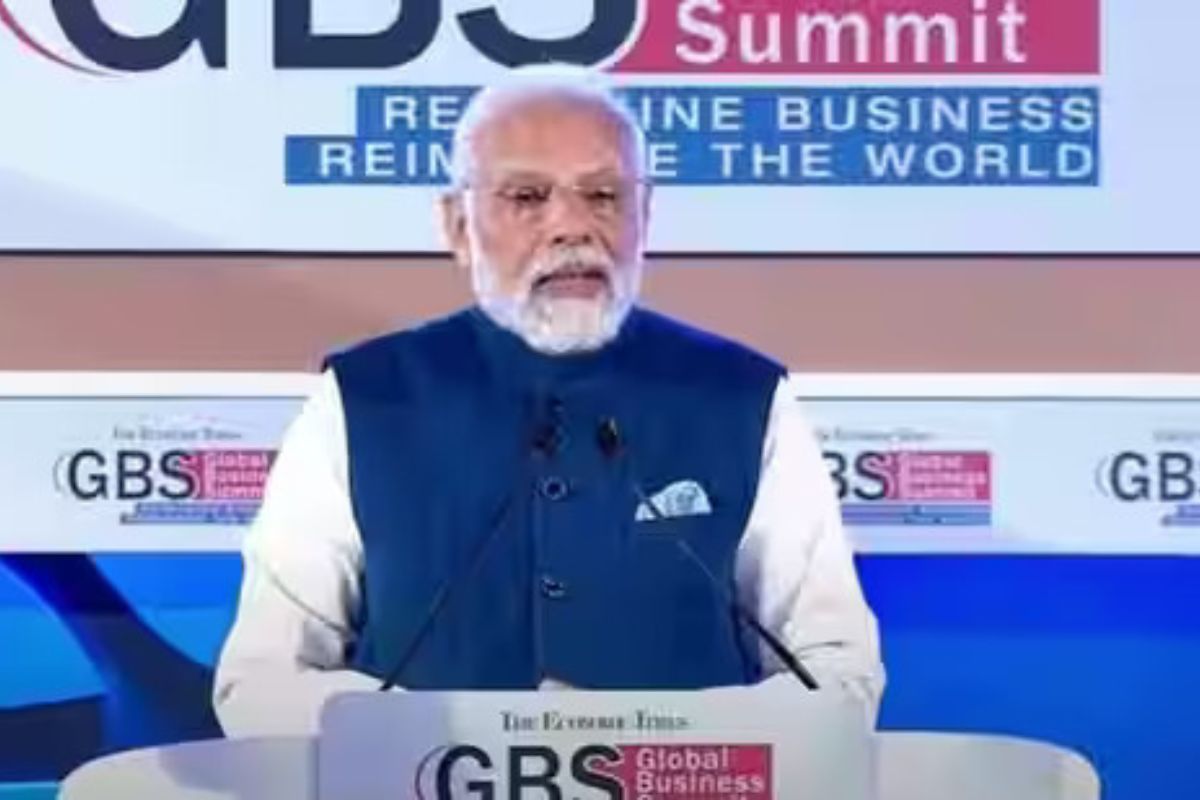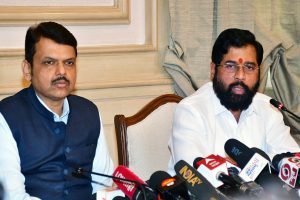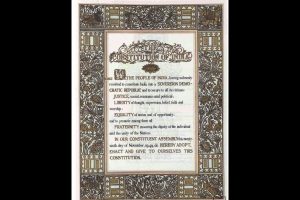Prime Minister Narendra Modi on Friday said India, once counted among the “fragile five” nations of the world, today had established itself as an “anti-fragile” nation, having faced difficulties resolutely to emerge as a stronger economy.
Addressing the Global Business Summit organized by a leading economic Daily here, the Prime Minister said India had shown to the world its capacity to face crisis resolutely, and what it meant to be anti-fragile, utilising a crisis as an opportunity to emerge stronger.
Even a century later, he said, the whole of humanity would feel proud how India had faced the Covid-19 pandemic, the biggest crisis of the last one hundred years. India has entered the 21st century, with a proven record of its capacity. He said he was always convinced about the determination power of the 140 crore Indian people.
Dwelling on how his Government had changed the concepts of governance, he said before his Government took over in 2014, there were scams involving thousands of crores. The poor could not think of their rights due to corruption. Due to policy paralysis, the infrastructure projects were getting delayed. Youth could not aspire due to nepotism.
In such a situation, his Government decided to “reimagine” governance and to ensure that the delivery of welfare measures to the poor made improvement.
Bank accounts, bank loans, own houses with ownership rights, toilets, electricity, clean cooking fuel and internet connectivity were not thought of earlier. So it was decided to “reimagine” all these things.
The previous Governments might have talked about “garibi hatao” (removal of poverty) but the poor were just considered a burden on the nation, the Prime Minister said.
Mr Modi said his Government had decided to empower the poor through direct benefit transfer so that their potential could be utilized for the growth of the country.
He said the late former Prime Minister Rajiv Gandhi had admitted that only 15 per cent of the welfare money reached the intended beneficiaries.
His government has so far transferred Rs 28 lakh crore to the poor. Just imagine, if only 15 per cent had reached the beneficiaries, it would have meant that Rs 24 lakh crore would have gone into somebody’s pockets and forgotten about.
Only Rs 4 lakh crore would have reached the poor, he said. Today, as his government reimagined the systems, and arranged for the DBT, all 100 paise of a rupee reached the beneficiaries, the Prime Minister said.
Even Nehruji had said if the poor got toilets in their homes, this would have meant the country has achieved a high level of development. This meant that Nehruji knew about the problem. But the urgency of solving the problem did not occur to the Governments then, the Prime Minister said.
In 2014, there were more than 100 backward districts in the country without schools, power or hospitals. His Government designated them as Aspirational Districts. Postings in these districts were considered punishment postings but his Government posted the best officers there.
He said his government stopped considering infrastructure development in silos and reimagined it as a grand strategy. India has presented before the world a new model for development of physical and social infrastructure.
Before his Government there was no trust in the citizens. His Government decided to have faith and trust in the citizens. Today 40 per cent of all digital payments in the world are made in India, the Prime Minister said.












